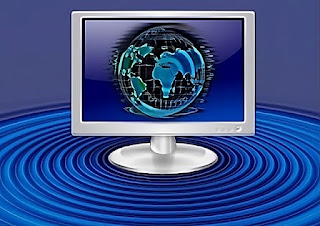Defining the Quantum Internet
The quantum internet is an envisaged network of interconnected quantum computers able to send, compute, and receive information encoded in quantum states. Unlike the conventional internet, a quantum internet doesn't rely on classical bits to convey information. Instead, it uses quantum bits, or qubits, which can exist in multiple states simultaneously thanks to a quantum phenomenon known as superposition.
The quantum internet is not intended to replace our current internet infrastructure. Instead, it is envisioned to coexist, providing a separate network capable of solving specific types of problems that are currently computationally challenging or impossible.
Understanding Qubits and Quantum States
Quantum computers utilize qubits as the fundamental units of information, akin to bits used in classical computing. However, unlike their classical counterparts, which can only exist in a binary state of 0 or 1, qubits can exist in a superposition of states. This means a qubit can be both 0 and 1 simultaneously.
This superposition allows quantum computers to process information in an entirely different manner than classical computers. Consequently, they can solve specific types of problems that even the most powerful supercomputers would take decades to complete. These problems range from factoring large numbers, solving complex logistics calculations, breaking RSA encryption in minutes or seconds, and discovering new drugs or materials for solar cells and batteries.
The Power of Quantum Entanglement
Quantum entanglement is another unique feature of quantum mechanics that the quantum internet aims to exploit. When two qubits interact and become entangled, they share particular properties that remain interdependent regardless of the distance that separates them. This "spooky action at a distance", as Albert Einstein once called it, enables teleportation of information from one qubit to its entangled counterpart without the need for a physical channel.
Quantum Internet Applications
Although the full potential of the quantum internet remains to be unlocked, some theorized applications have already been demonstrated, including quantum key distribution (QKD). Thanks to the unique properties of qubits, the quantum internet can significantly enhance information security, making quantum-encrypted messages nearly impossible to intercept and decipher.
Quantum Key Distribution (QKD)
QKD is a process where two parties share a cryptographic key over a quantum network that cannot be intercepted. The security of QKD stems from the quantum principle that any attempt to measure a quantum state alters that state. This means an eavesdropper trying to intercept the key would inevitably leave a trace, alerting the communicating parties of the intrusion. A fully-realized quantum network could significantly improve the precision of scientific instruments used to study certain phenomena, including gravitational waves from black holes, microscopy, and electromagnetic imaging.
The Future of Quantum Internet
Creating a full-scale global quantum internet is a formidable task that researchers worldwide are striving to achieve. Major strides have been made in this field, including the successful transmission of entangled photons between a satellite in orbit and ground stations over 700 miles below. The establishment of interstate quantum networks within countries, such as the United States, is projected to occur within the next 10 to 15 years.
The future quantum internet represents a paradigm shift in secure global communication. By creating an entangled network of quantum computers, we can send unhackable encrypted messages, use quantum clocks to keep technology perfectly synchronized over long distances, and solve complex problems that a single quantum computer might struggle with alone. These are only a few of the applications we know about now. The future is likely to hold surprising and impactful discoveries using quantum networks.
Building the Quantum Internet
While the quantum internet has moved beyond the theoretical, scientists are still perfecting much of its essential hardware, including the components responsible for generating, transmitting, and synchronizing qubits. Qubits are encoded in the quantum states of subatomic particles, and these quantum states can easily be disrupted by external forces such as vibration or temperature fluctuations.
The next crucial step in quantum internet development is scaling up the infrastructure. This involves finding the best ways to produce numerous entangled qubits on demand, over long distances, and between many different points simultaneously. Governments and organizations worldwide have embarked on this endeavor, with countries like the U.S., China, and members of the EU investing heavily in quantum networking technology.
Conclusion
As with the advent of the internet, the full implications of the quantum internet won't be known until it's fully developed. However, the potential applications and benefits are already causing a stir in the scientific community. The quantum internet, in its essence, represents a significant leap in information technology, promising to redefine the way we approach and solve complex problems in numerous domains. As we stand on the precipice of this new technological era, one thing is clear: the quantum revolution is just around the corner.


Post a Comment